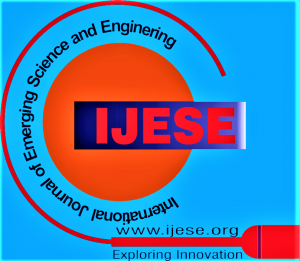![]()
Assessment of Computer Literacy at Secondary Education Level in Rural Areas of Sindh (Pakistan)
Muhammad Nawaz Tunio1, Nazia Rasheed Arain2, Shazia Parveen Tunio3
1Muhammad Nawaz Tunio, Centre for Biosaline Agriculture (CBSA), Sindh Agriculture University, Tandojam, Pakistan.
2Nazia Rasheed Arain, Virtual University of Pakistan, Hyderabad, Pakistan.
3Shazia Parveen Tunio, Social Science Research Institute, PARC, Tandojam, Pakistan.
Manuscript received on May 11, 2013. | Revised Manuscript received on May 15, 2013. | Manuscript published on May 25, 2013. | PP: 13-15 | Volume-1 Issue-7, May 2013. | Retrieval Number: G0289051713/2013©BEIESP
Open Access | Ethics and Policies | Cite | Mendeley
© The Authors. Published By: Blue Eyes Intelligence Engineering and Sciences Publication (BEIESP). This is an open access article under the CC BY-NC-ND license (http://creativecommons.org/licenses/by-nc-nd/4.0/)
Abstract: Efforts have been taken to some extent in public sector schools but no constant attention and continuous interest is paid to fill the digital gape. Education and ICT can be sound and significant if these kept beyond the political priorities in Pakistan. Urban areas of t Pakistan are well equipped with sound facilities and education of recognized quality but rural areas suffer from this experience. Expansion of private sector in education system has elevated the use of ICT accordingly and middle and upper class families prefer to get services from private schools for quality education of the children. This research recommends that ICT practice should be uniform in all units of Pakistan. ICT application should not be left on the sympathy of conditions as this system needs strong leadership.
Keywords: ICT, Secondary Education, learning, Training.
